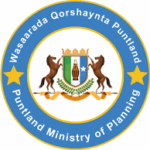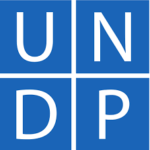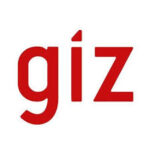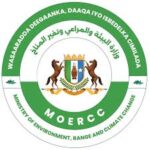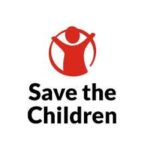WHAT WE DO
Capacity Building
AMNI has conducted extensive research on Putnland from 2024 up to date and has conducted trainings and courses on capacity building for local civil society organizations, to increase their organizational capacity knowledge of FGM in Putnland.
We deliver specialist FGM training to a diverse range of frontline professionals in Social health workers, voluntary, media, local CSOs and community. We base our capacity building on our research; by developing and distribute advocacy materials, training tools and curricula to the local organizations and using to bring effective change at a community level.
AMNI also capacitate its staff to recognize anti-FGM program to enhance ownership in the organization and hence effectively strengthen anti-FGM/C campaign. AMNI shares knowledge, best practice and research as part of our mission to accelerate an end to female genital Mutilation (FGM). We communicate the realities of FGM as well as the hope and possibility that the practice can end.
Through Workshops and training we support those that are working towards ending FGM in their communities.
Awareness and Advocacy
Advocacy plays a crucial role in AMNI’s efforts to combat FGM/C. It involves influencing policy makers and the general public in Puntland to support AMNI’s anti-FGM mission. At all levels, AMNI advocates for increased attention to ending FGM/C, believing that this can only be achieved through collaboration among grassroots activists, regional, national, and international decision makers.
AMNI’s advocacy is grounded in evidence, aiming to enhance the capabilities of individuals, organisations, and systems to effectively address FGM/C. This process involves fostering attitude change and facilitating the enactment, adoption, implementation, and monitoring of supportive policies.
Self-Help Group (SHG)
An informal association of impoverished communities, united in their aim to collaborate for economic, social development, and empowerment, Self-Help Groups (SHGs) promote human rights enjoyment for vulnerable and marginalized populations, particularly the poorest among them. This approach begins by prioritizing the needs of the most impoverished women and their children before expanding its focus to encompass entire families and communities.
Built upon existing strengths and capabilities, the SHG Approach empowers impoverished individuals through social, economic, and political avenues, enabling them to assert and realize their rights as human beings, citizens, and active members of society.
Currently, the SHG approach is being implemented within internally displaced persons (IDP) camps in the Nugaal, Karkaar, and Beri regions. This initiative targets these communities due to their displacement resulting from conflicts, widespread poverty, marginalization, and limited influence. The project’s goal is to empower these individuals regarding their rights.
Through the formation of SHGs, people’s capacities and assets are enhanced, enabling them to make informed decisions, take action, and participate in local governance.
Each SHG typically consists of 15 to 20 members, with a total of 8 Cluster Level Associations (CLA) formed as SHGs expand in number.
Self Help Groups were trained in the following so as to deliver the results:
Responsibilities of Self-Help Group (SHG) and Cluster Level Association (CLA) tiers involve comprehensive member training to grasp their functions and project advantages.
Emphasis is placed on devising action plans across all groups, fostering a shared mission and vision.
Members are equipped with essential skills through specialized training sessions, such as bookkeeping for SHG records like loan documentation and meeting summaries.
CLA members receive guidance on judicious investment strategies, highlighting the significance of singular, low-labor investments.
Current statistics indicate significant progress:
There are currently 23,106 SHG members.
These SHGs have established over 18,645 businesses.
The total capital accumulated from their savings amounts to $12 million USD.
More than 129,972 children across Puntland are benefiting from the project.
Increased awareness of health and hygiene within the community has been observed.
The community’s ability to address social issues at the village level has improved.
Contributions have been made to community projects, including food collection for those affected by drought.
There is evidence of enhanced status, participation, and decision-making power at the household level, characterized by independent opinions, the right to make choices, and increased participation in local governance, leading to an improved standard of living.
Support Center and Counselling
In 2023, AMNI established a Support Center in the capital, subsequently expanding to include two additional centers in Garoowe and Boosaso as part of the project. These centers, staffed by midwives trained by the project, provide counseling services to women either individually or in group settings. Notably, the services at AMNI support centers are provided free of charge to those unable to afford them. Accessibility to social support is facilitated by various means, including direct exposure to information about the support center for those residing in the vicinity, referrals from other health facilities, and recommendations from acquaintances who have either directly benefited from the center or know someone who has.
Moreover, AMNI conducts a “community education campaign” in the catchment area of the support centers. Through engagements with local women’s groups, religious leaders, village health committees, and other community institutions, AMNI disseminates information about the adverse effects of FGM/C and where to seek assistance for related health issues. The primary challenge faced by AMNI and similar programs is overcoming the ignorance, embarrassment, and shame that hinder women from seeking necessary care and treatment. Inset picture
-
• AMNI support centers, 14,324 survivors received psychosocial counseling.
• 1,238 individuals were referred to alternative health facilities.
• Medical treatment was administered to 128 survivors suffering from cyst complications.
• 7,544 households and clients of Maternal and Child Health services received educational sessions on FGM/C.
• 2,180 community members participated in Community Conversation Meetings facilitated by AMNI.

